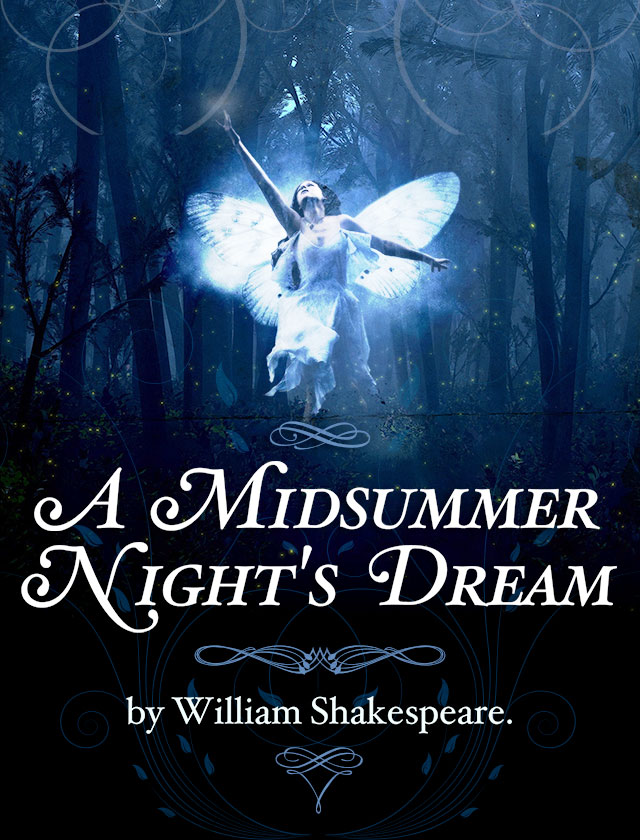A Midsummer Night's Dream
by William Shakespeare
Act 5
Summary: Act V, scene i
In a room at the Duke’s palace, Theseus and Hippolyta talk about the very strange story which the four young lovers have now told them about the evening before. Theseus supposes that love plays tricks on the mind, and Hippolyta is in awe of the fact that each of the lovers had the same illusions. Lysander, Demetrius, Helena and Hermia enter, and the Duke asks what entertainments they should plan for their wedding evening. He summons Philostrate, who presents several different options. Theseus decides that the production of “Pyramus and Thisby” sounds the most intriguing, in spite of Philostrate’s objections about the amateur talent of the performers. Hippolyta also objects, but Theseus maintains that simple, heartfelt performances are the best.
The craftsmen proceed to regale their noble audience with a comically poor performance of their tragedy. Throughout, the nobles insert their own commentary, but Theseus defends the amateur actors by pointing out that even great actors require the audience to use their imagination. At the end of the farce, Bottom offers to perform an epilogue, but Theseus declines. After the newlyweds have all gone to bed, Puck sweeps up the stage while reciting a poem about how fairies emerge in the nighttime. Next, Oberon and Titania enter and place a blessing upon the Duke’s palace, all the newly married couples sleeping within it, and their future offspring. Finally, Puck addresses the audience directly in a monologue apologizing for anything in the play that might have offended us. He begs the audience to dismiss these fantastical events as merely a dream, and offers his hand in friendship.
Analysis: Act V, scene i
The conversation between Hippolyta and Theseus neatly draws together each of the play’s distinct worlds. Theseus’s assertion that “The lunatic, the lover, and the poet/Are of imagination all compact” (V.i.7-8) points to the powerful imaginative capacities shared by lovers (represented by the...
Sign up to continue reading Act 5 >